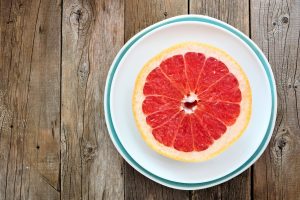
Parenting is one of life’s most selfless roles—but it shouldn’t cost you your joy. Many caregivers run on autopilot, ticking off endless to‑dos while quietly wondering when their own needs vanished from the list. If that sounds familiar, you’re not alone. Here are seven honest clues that devotion to your kids may be overshadowing your personal well‑being—and gentle ways to restore balance.
1. You Feel Overwhelmed Even on “Normal” Days
The invisible “mental load” of remembering field trip forms, rotating pantry stock, and anticipating growth spurts is cognitively draining. Recent studies estimate that mothers carry roughly 70 percent of a household’s planning tasks, and the same research links unequal cognitive labor to higher rates of burnout and lower life satisfaction among parents
Try this:
- Name the load. List everything currently circling in your head—no filter. Seeing it on paper makes sharing or deleting tasks easier.
- Delegate early, not late. Discuss recurring chores with partners, older kids, or paid helpers before fatigue hits.
- Book one non‑negotiable rest pocket daily. Fifteen minutes of stretching, journaling, or silence at the same time each day trains your nervous system to expect recovery.
2. Your Hobbies Have Disappeared
When personal passions vanish, so does an important source of resilience. Leisure activities boost mood, sharpen cognition, and remind children that adults have identities beyond caregiving.
Try this:
- Calendar it like a dental appointment. A scheduled slot signals that your interests matter just as much as pediatric check‑ups.
- Shrink the hobby, keep the spark. If you once painted for hours, start with a 15‑minute sketch after bedtime.
- Pair hobbies with family life. Audiobooks during school pick‑up lines, gardening while toddlers dig in the dirt, or language app lessons on your commute all weave “you time” into existing routines.
3. You Say “Yes” to Every Kid‑Related Request
From chairing the PTA to coaching soccer, over‑commitment can masquerade as dedication. Yet research on parental volunteering warns that chronic “yes‑itis” heightens stress and reduces the energy available for core family needs.
Try this:
- Explain your boundary aloud. Kids learn healthy limits by watching you protect yours.
- Adopt a 24‑hour pause. Tell organizers, “Let me check my week and get back to you tomorrow.” Delay diffuses pressure and yields clearer choices.
- Use a kind but firm decline. “I can’t lead the fundraiser this semester, but I’m happy to bake cupcakes for the kickoff.”
4. Friendships (and Romance) Are on Hold
Strong adult connections act as shock absorbers against parenting stress, buffering loneliness and improving coping skills. When conversation revolves only around lunchboxes, identity outside “Mom” or “Dad” erodes.
Try this:
- Leverage technology wisely. Group chats, multiplayer phone games, or virtual book clubs keep bonds alive when leaving the house feels impossible.
- Micro‑meetups. A 15‑minute voice memo exchange, coffee on the sidelines, or a shared grocery run still counts as connection.
- Standing “date” reminders. A bi‑weekly walk with a friend or a monthly at‑home date night with your partner creates rhythm without extra planning.
5. Your Self‑Worth Rises and Falls With Your Child
Basing your identity on report cards or tantrum tallies creates emotional whiplash. Parenting experts warn that hyper‑focus can stress kids and parents.
Try this:
- Invest in personal growth. Whether it’s a course, therapy, or fitness challenge, nurturing yourself models lifelong learning.
- Track your own wins. Keep a simple note—“Finished client proposal,” “Ran 2 miles,” “Helped neighbor”—to anchor self‑esteem in your actions, not your child’s behavior.
- Separate critique from self‑concept. A rough bedtime doesn’t equal parental failure; it signals a skill‑building moment for your child.
6. Guilt Shadows Any Time Away
Leaving kids with a sitter feels selfish—but prioritizing yourself isn’t neglect. Studies link parent well‑being to children’s emotional security.
Try this:
- Create a departure ritual. A special handshake or note eases transitions and reassures children of your return.
- Start with micro‑getaways. A solo latte run or a 30‑minute yoga class proves the family survives—and often functions better—while you recharge.
- Reframe absence as investment. Remind yourself (and your kids) that rested parents return more patient, playful, and creative.

7. You Secretly Miss Your “Old Life” but Feel Ashamed
Nostalgia for pre‑parent spontaneity is normal. Ignoring it can foster resentment, while acknowledging it opens the door to weaving pre‑kid passions into present‑day realities.
Try this:
- Plan a future‑you date. Booking concert tickets six months out keeps excitement alive and signals that parenthood expands life rather than shrinking it.
- Name one element you miss most. Is it travel, late‑night movies, uninterrupted reading? Identify a bite‑sized version (weekend road trip, 9 p.m. documentary, 20‑page reading sprint).
- Invite your kids into the passion—selectively. Share travel photos over dinner or craft a playlist together. They’ll learn about your history and broaden their own horizons.
Reclaiming Joy Makes You a Better Parent
Choosing happiness strengthens, rather than weakens, your caregiving. When you’re rested and fulfilled, you model resilience and balance—lessons your children will carry for life. Start small, ask for help, and remember family happiness is a shared equation, not a zero‑sum game.
Share one small change you’ll try this week in the comments—we’re cheering you on.
Read More
- How to Talk to Your Kids When You’re Struggling Mentally Yourself
- Why Some Boomers Struggle With Their Kids’ Mental Health Needs

Samantha Warren is a holistic marketing strategist with 8+ years of experience partnering with startups, Fortune 500 companies, and everything in between. With an entrepreneurial mindset, she excels at shaping brand narratives through data-driven, creative content. When she’s not working, Samantha loves to travel and draws inspiration from her trips to Thailand, Spain, Costa Rica, and beyond.













